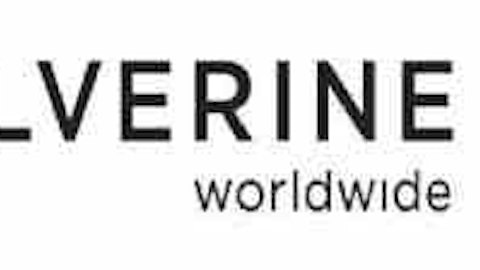There seems to be plenty of evidence suggesting that some players in the market have a significant advantage when compared to the average investor. While it’s legal, it also implies the market is hardly a level playing field. But this is OK. Individual investors can still profit from this rigged game, and they can even capitalize on big players’ advantages.
Are markets rigged?
Having greater access to information, greater access to powerful technology, and greater access to large pools of investable funds are significant advantages that virtually ensure stock market profits.
Recent reports about the University of Michigan’s influential consumer sentiment report and the Chicago purchasing managers index, a Chicago-based indicator of business activity, being released early to a select group of high-paying subscribers only confirms the benefit of getting information first.
The advantage of getting such information early is enhanced by the possession of highly advanced technology. High-frequency trading (“HFT”) firms are the main beneficiaries of such a setup. Armed with complex algorithms and super fast computers, they scour public and private markets for information that can cause deviations from historical price trends and leap on those discrepancies. These trading firms, made up mainly of scientists and software developers, hope to eke out a fraction of a cent profit on each of the huge number of shares they trade. HFT volumes are now estimated to account for 50% to 80% of all equity trades, up from an estimated 20% to 50% in 2006.
The evidence that an edge in technology and information creates an almost foolproof method of profitability is compelling. Many HFT firms have reportedly been able to make money on every single trading day. Large financial institutions, which also have access to huge pools of investable cash, add a market pricing influence advantage. The combination of these favorable traits seems to ensure big profits on a pretty consistent basis.
Leading financial firm Goldman Sachs Group Inc (NYSE:GS) reported trading losses on only 16 days in 2012, the fewest since it started reporting the figure in 2004. Morgan Stanley reported that it lost money on just 37 days last year, the fewest since 2007, and traders at JPMorgan Chase & Co. (NYSE:JPM) lost money on just seven days, down from 26 in 2011.
Unfair can still be profitable
Luckily the stock market is not a zero-sum game; astute investors can make money regardless of what hijinks go on with the big players. The keys for beating a rigged market are knowledge and a long timeframe. Knowing what a company’s worth and what information is relevant can offer a significant advantage over HFT’s and large institutions that trade based on recent headlines. Since these firms aren’t interested in a company’s fundamentals or long-term outlook, a correct interpretation of those factors can provide an edge for the individual investor.
Another advantage is having a long timeframe. HFT’s and most institutional players need to book profits very quickly. HFT’s often close out all positions daily and large financial firms need to meet quarterly or monthly benchmarks. The average investor, once having a reasonable basis for valuation, is able to wait as long as it takes for the value to be realized.
Profit from headline overreaction
The domination of short-term tactics in the stock market can often offer lucrative longer-term investing situations. Here are a few recent examples.
Health insurance companies often post negative surprises that cause a short-term overreaction. In July 2012, WellPoint, Inc. (NYSE:WLP)’s lower-than-expected earnings and reduced outlook sent the stock down sharply. The company reported that net income fell 8.3% to $643.6 million from $701.6 million a year earlier, though revenue increased to $15.2 billion versus the prior year’s $14.9 billion. WellPoint, Inc. (NYSE:WLP) shares plunged by more than 12% to $54 on the announcement.
But based on estimated annual sales of $71.0 billion with cash earnings of $2.6 billion and using a cash earnings times a capitalization multiple valuation, reasonable business value looked to be around $86 to $103 a share at a fairly conservative industry multiple ranging from 10 to 12, a margin of safety too good to ignore. After better news, the shares rose to a recent price around $78.
At about that time, fellow insurer Humana Inc (NYSE:HUM) also reported a lower-than-expected quarterly profit and cut its forecast, admitting it had been surprised by increased costs. The company reported second quarter earnings of $356 million, down from $460 million the year before, though again, revenue rose 4% to $9.7 billion. Humana Inc (NYSE:HUM) shares fell to $62 in extended trading after the release.
Its fair business value looked to be around $84 to $100 a share using the 10 to 12 multiple range, with estimated revenues of $41.2 billion and cash earnings of $1.3 billion. Humana Inc (NYSE:HUM) also quickly improved results. Its shares are now near $82.
The retail space often offers similar opportunities. In October 2012, Deckers Outdoor Corp (NASDAQ:DECK) reported third-quarter sales below analyst estimates as higher pricing put off customers. The company cut its full-year revenue growth forecast to 5% from 14% and said it would have a 33% drop in per-share earnings. The bad news sent Deckers Outdoor Corp (NASDAQ:DECK) shares down to $29 after the bell.
Although the release was an unequivocal disappointment, based on annual sales of around $1.5 billion and a deeply discounted earnings estimate of $138 million, the company’s reasonable business value was around $55 a share at an average retail industry multiple of 14. At a significant discount, with no debt and plenty of time to stabilize, it’s not surprising to see the company rebound to trade at around $54.
Conclusion
There’s plenty of evidence that the stock market is not a level playing field. But this doesn’t mean an individual investor can’t do well. Knowing the right things and waiting for them to play out might not be the lock that some market players have, but it can still provide an adequate return on investment.
The article A Rigged Market? It’s OK With Me originally appeared on Fool.com and is written by Bob Chandler.
Bob Chandler has a long position in WellPoint. The Motley Fool recommends WellPoint. The Motley Fool owns shares of WellPoint. Bob is a member of The Motley Fool Blog Network — entries represent the personal opinion of the blogger and are not formally edited.
Copyright © 1995 – 2013 The Motley Fool, LLC. All rights reserved. The Motley Fool has a disclosure policy.




